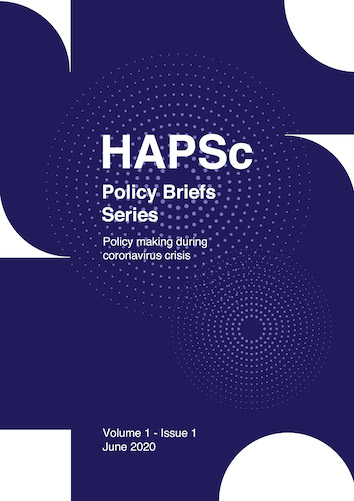Covid-19 has brought back the necessity of the welfare state: The Greek case
Abstract
Article Details
- Come citare
-
Tzagkarakis, S.-I., Pappas, I., & Kritas, D. (2020). Covid-19 has brought back the necessity of the welfare state: The Greek case. HAPSc Policy Briefs Series, 1(1), 67–73. https://doi.org/10.12681/hapscpbs.24950
- Sezione
- Articles

TQuesto lavoro è fornito con la licenza Creative Commons Attribuzione 4.0 Internazionale.
Authors retain copyright and grant the journal right of first publication with the work simultaneously licensed under a Creative Commons Attribution License that allows others to share the work with an acknowledgement of the work's authorship and initial publication in this journal.



